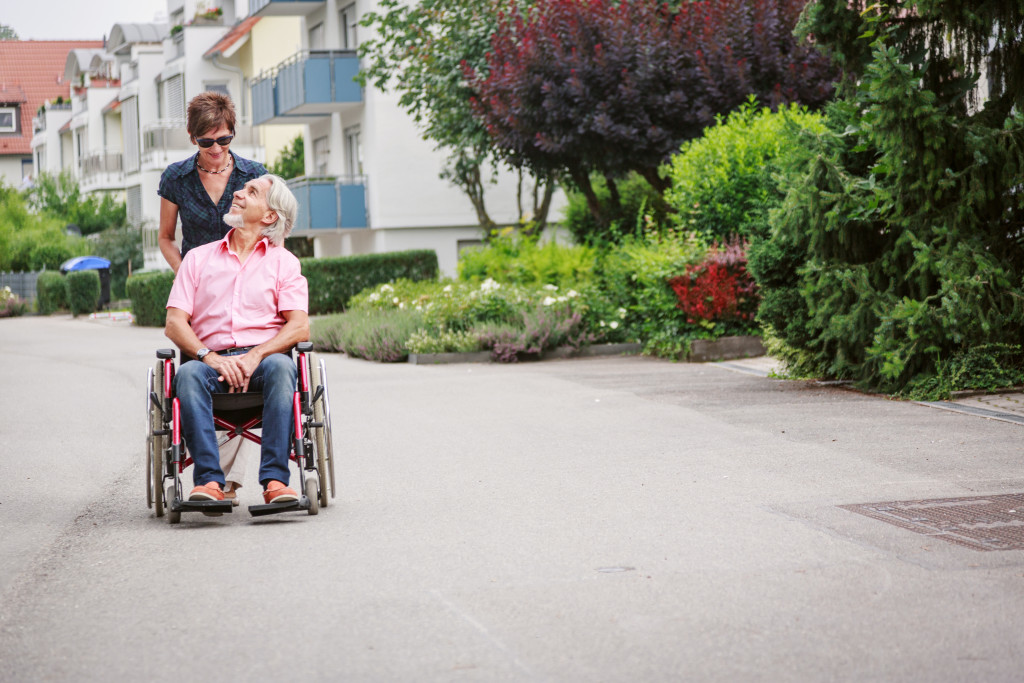The number of seniors in the United States is growing, and with that growth comes a lot of hard decisions. On the one hand, many people want to stay in their homes as they age. On the other hand, staying at home may lead to isolation from friends and family members who have moved away or passed on.
And for some elderly people, living alone can be too much responsibility when physical abilities start to wane. Thus, many seniors find themselves in need of senior housing options. There are plenty to choose from — but which one works best for your situation?
You can contact senior living advisors to help you find the right fit for your needs — but it will be helpful to have an idea of what types of housing are available. Here are seven that are common in today’s market.
Retirement Communities
Many individuals will continue to work as they age, and as a result, they may not want to give up their community. In this case, options such as senior communities are appropriate. These communities offer many amenities for retired people, including low-maintenance living situations, housekeeping services, scheduled activities, and more.
Retirement communities often have a central location with convenient public transportation access — meaning living at home can be both easier and safer than it might otherwise be.
Independent Living
Some retirees live alone or with a spouse but still want to enjoy the benefits of living in an apartment building. Independent living is one of the most popular housing choices for people after retirement, as they are generally more active than most seniors and are generally looking for social opportunities.
Retirement communities offer independent living apartments that have full kitchens, housekeeping services, scheduled activities, transportation options — just like any other apartment complex. However, seniors who live here pay a monthly fee in exchange for all these perks.
Assisted Living/Nursing Homes

Not everyone wants to live independently. For seniors who need more care than can be provided in an independent living complex, assisted living may be the choice for them. Assisted living communities typically offer apartment-style units, often allowing residents to decorate their rooms however they’d like.
Seniors here are also provided with housekeeping services and transportation options — though activities are usually limited, as medical needs are taken into consideration at all times.
Nursing homes are similar to assisted living facilities, though residents will typically have more medical needs. Many nursing home residents require 24-hour care and supervision because they are unable to take care of themselves or live independently.
Home Help/Housekeeping Services
For seniors who want the benefits of independent living but would appreciate help with daily tasks around the house, many communities offer home help services — also known as housekeeping services. These services provide an elderly person with a certain number of hours each week in which someone cleans, cooks, and/or takes out their trash for them.
Although these individuals won’t get their meals through this service, it ensures that they can continue to lead active lives without worrying about people coming into their homes to cook for them.
Adult Day Care Centers
Seniors who don’t want to make a commitment to living in a senior housing facility may find adult daycare centers useful. These provide seniors with a place to go during the day while they’re still in charge of their own schedules and activities.
Here, they can socialize with other older adults and participate in fun group outings or activities that will stimulate the mind. However, some people may not be comfortable leaving their belongings at an adult daycare center all day long.
Alzheimer’s Care/Nursing Homes
For seniors who are suffering from Alzheimer’s disease or dementia, specialized facilities might need to be considered. Nursing homes and assisted living communities can help here — they often accept residents who require more care than what is offered in an independent living complex.
However, each facility will have different rules about the minimum age of residents. Some may require that their nursing home has a certain number of younger members to provide companionship for those with mental disabilities.
Cohousing Communities/Housing Cooperatives
There is a growing number of people who want to be environmentally conscious after they retire. Cohousing communities, or housing cooperatives, are perfect for them. These types of senior housing facilities provide every member with a single-family home — but they do not have any private property.
Instead, the homes are all built around a central area that includes things like community space and gardens as well as shared meals, laundry services, and other amenities. This type of living ensures that people become more socially active while still maintaining their independence as long as possible throughout their retirement years.
There are many types of senior housing, each with its own set of benefits and drawbacks. Here are seven of the most common options. Consider all your options before making a decision, and don’t be afraid to ask for help.





